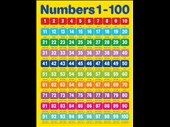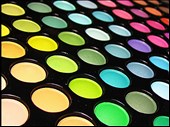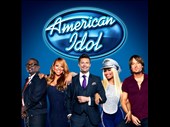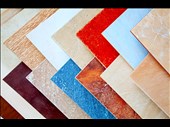Solution for: A biogas plant
Answer Table
| 1. C | 6. D |
| 2. G | 7. G |
| 3. A | 8. C |
| 4. E | 9. A |
| 5. F | 10. E |
Exam Review
A biogas plant
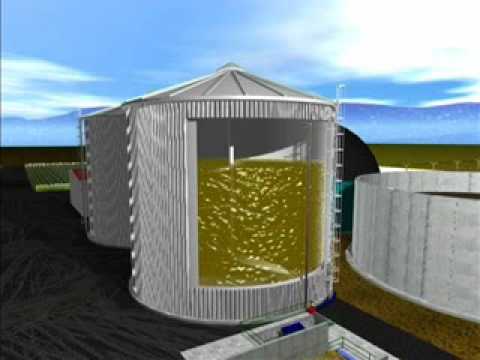
Hello Eve, come in and sit down ... How’s it going?
Fine thanks. I’m looking forward to my teaching practice next week.
Good. Now you’ve got two classes, haven’t you - Year 3 and Year 6. Have you done your lesson plans?
Well, I’ve decided to take the topic of renewable energy ... I haven’t done a lesson plan for Year six yet, but I thought I’d base their lesson on an example of very simple technology. So I’ve brought this diagram to show you ... I got it from the Internet.
Let’s see ... A biogas plant ... So this is equipment for producing fuel from organic waste?
Yes. The smaller container on the left is where you put the waste you’ve collected ...
Right, and from there it’s piped into the larger tank?
That’s right. And that’s slurry on the base of the larger tank.
Right ... and what exactly is slurry?
It’s a mixture of organic waste and water.
So is that pipe at the bottom where the water comes in?
Yes it is ... As the slurry mixture digests it produces gas, and that rises to the top of the dome. Then when it’s needed it can be piped off for use as fuel in homes or factories. It’s very simple.
I suppose there’s some kind of safety valve to prevent pressure build-up?
That’s the overflow tank. That container on the right. As the slurry expands some of it flows into that, and then once some of the gas has been piped off, the slurry level goes down again and the overflow tank empties again.
I see. Well I think that’s suitably simple for the age level it’s for. I look forward to seeing the whole lesson plan.
Thanks. And can I show you my ideas for the Year three lesson?
Of course. Let’s look.
I thought I’d introduce the topic by writing the word ‘energy’ on the board, and reinforcing the spelling and the pronunciation. Then I’ll do a little mime - you know, run on the spot or something - to convey the sense.
I’d keep it brief at this stage ...
Yes, I will. Then I’ll wipe the word off and write the question ‘Where does energy come from?’, and see what the pupils come up with.
Fine. I’d suggest that you just brainstorm at this stage, and don’t reject any of their suggestions.
Yes, that’s what I was going to do ... Then I’ve produced a set of simple statements, like ‘Energy makes cars move along the road’, and ‘Energy makes our bodies grow’. There are eight altogether.
Are you going to give them out as a handout? Or write them up on the board?
First, I’ll put them on the board, and then I’ll read them out loud. And I’ll get the pupils to copy them out in their note books. I’ll also ask them to think up one more similar statement by themselves, and add it to the list.
Good idea.
Eve: After that I thought I’d vary things a bit by sticking some pictures up ... of things like the sun and plants and food, and petrol, and a running child. And I’ll get the pupils to work out what order the pictures should come in, in terms of the energy chain.
Tutor: I think that’s a very good idea. You could move the pictures around as the pupils give you directions.
Eve: Yes, I think they’d enjoy that. And to finish off I’ve made a gap-fill exercise to give out.
They’ll be doing that individually, and while they’re writing I’ll walk round and check their work.
Tutor: Good ... And have you worked out the timing of all that? It’ll probably take you right through to the end of the...
Questions 1-5
You will hear a trainee teacher called Eve talking to her university tutor about her preparations for teaching practice.
Label the diagram below.
Write the correct letter, A-G, next to questions 1-5 below.

1
Answer: C Locate Listen from here Waste container
2
Answer: G Locate Listen from here Slurry
3
Answer: A Locate Listen from here Water inlet
4
Answer: E Locate Listen from here Gas
5
Answer: F Locate Listen from here Overflow tank
Questions 6-10
Complete the flow chart below.
Choose FIVE answers from the box and write the correct letter, A-G, next to questions 6-10.
A Identify sequence.
B Ask questions.
C Copy.
D Demonstrate meaning.
E Distribute worksheet.
F Draw pictures.
G Present sentences.
LESSON OUTLINE YEAR THREE
TOPIC: ENERGY
ACTIVITIES
|
Teacher: Introduce word
Pupils: look and listen
|
|
Pupils: look and listen
|
|
Teacher: Present question
Pupils: respond
|
|
Teacher: Display pictures
|
|
Pupils: write
|
| |
|
Teacher: Monitor pupils
|
Other Tests
-
-
Total questions: 4
- 4- Multiple Choice
-
Total questions: 4
- 4- Summary, form completion
-
Total questions: 8
- 2- Multiple Choice
- 6- Sentence Completion
-
Total questions: 10
- 10- Summary, form completion
-
Total questions: 10
- 3- Multiple Choice
- 3- Plan, map, diagram labelling
- 4- Summary, form completion





